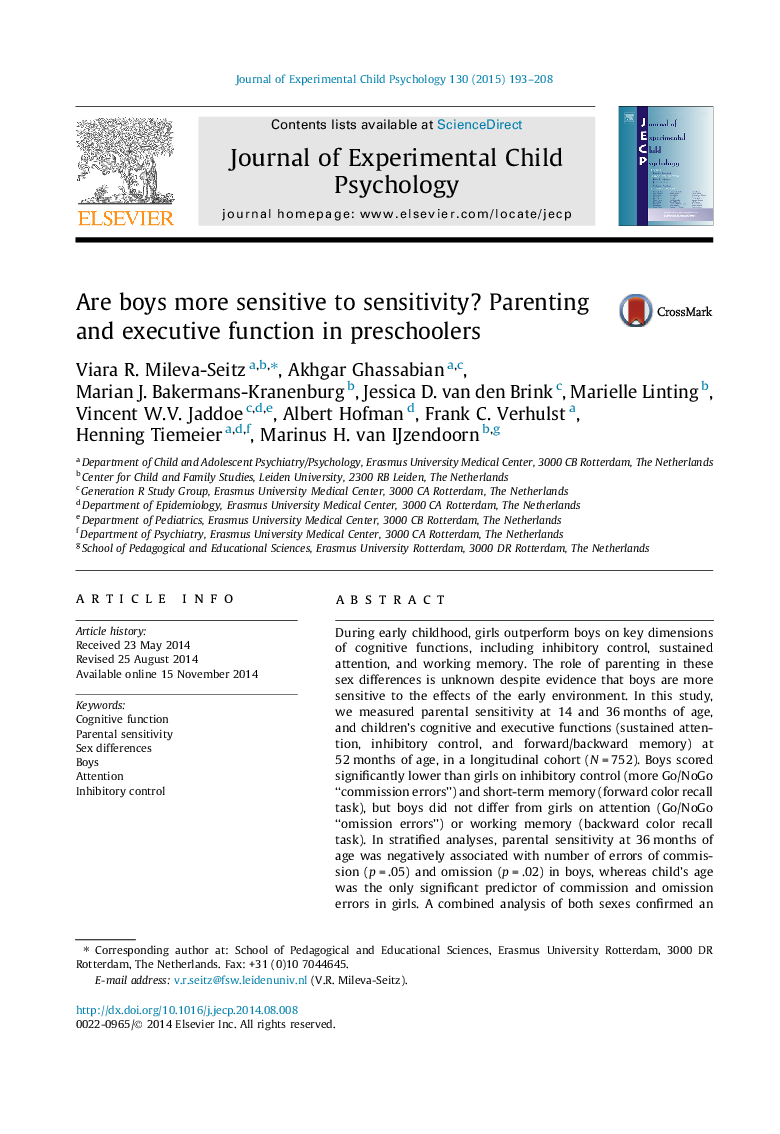| Article ID | Journal | Published Year | Pages | File Type |
|---|---|---|---|---|
| 918011 | Journal of Experimental Child Psychology | 2015 | 16 Pages |
•Preschool boys underperform girls on executive function tasks, making more commission errors and more forward memory errors.•Exclusion of children who fail ‘demonstration trials’ of Go/NoGo tasks might not be warranted.•Parental sensitivity is associated with omission errors in boys but not in girls.
During early childhood, girls outperform boys on key dimensions of cognitive functions, including inhibitory control, sustained attention, and working memory. The role of parenting in these sex differences is unknown despite evidence that boys are more sensitive to the effects of the early environment. In this study, we measured parental sensitivity at 14 and 36 months of age, and children’s cognitive and executive functions (sustained attention, inhibitory control, and forward/backward memory) at 52 months of age, in a longitudinal cohort (N = 752). Boys scored significantly lower than girls on inhibitory control (more Go/NoGo “commission errors”) and short-term memory (forward color recall task), but boys did not differ from girls on attention (Go/NoGo “omission errors”) or working memory (backward color recall task). In stratified analyses, parental sensitivity at 36 months of age was negatively associated with number of errors of commission (p = .05) and omission (p = .02) in boys, whereas child’s age was the only significant predictor of commission and omission errors in girls. A combined analysis of both sexes confirmed an interaction between sex and parenting for omission errors (p = .03). The results indicate that sex differences in cognitive functions are evident in preschoolers, although not across all dimensions we assessed. Boys appear to be more vulnerable to early parenting effects, but only in association with omission errors (attention) and not with the other cognitive function dimensions.
